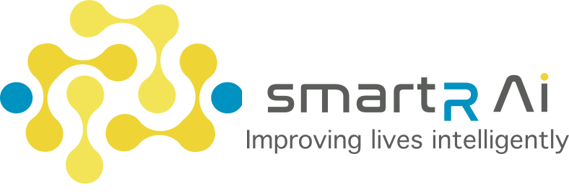For a long time, software has been exclusively owned by its producers and distributed to individuals through licensing agreements or Software as a Service (‘SaaS’). Yet, the safety concerns associated with SaaS products have led some companies, like smartR AI, to transfer model ownership to its end-users. This blog will explore why companies might opt to buy their own AI software, and what considerations should be kept in mind when reaching this decision.
SaaS systems tend to work on a subscription-based delivery of AI services, usually the services are hosted and managed by third-party provider on a cloud platform. On the other hand, with AI ownership systems (also known as on-premise/inhouse AI systems) all the AI software is hosted on the existing servers and hardware of the business. These private ownership solutions also tend to be customized to suit the specific business needs of the organizations involved.
The accessibility, scalability, and ease of integration of SaaS systems makes it obvious why they have been a first choice for companies for so long. SaaS systems are an attractive option particularly for small companies with limited resources as they offer a quick and easy way to access software without significant upfront investment into AI infrastructures of expertise. It also allows for companies to increase their AI usage in line with the company’s growth.
However, the downsides of SaaS can be rather major, especially when it comes to data privacy and security. Many AI service operators are using clients’ data and information, stored within their cloud under SaaS contracts, to train new models. By signing these SaaS agreements clients are inadvertently allowing their important knowledge and data to be built into AI models that potentially their competitors can utilize. This also goes against compliance regulations companies legally need to follow. Owning the software ensures that information is always kept safe, with no impending regulatory breaches.
Over and above, SaaS systems are extra vulnerable to data breaches. Storing company’s data outside of the organization’s direct control increases the likelihood of data leaks, and potentially falling foul of compliance regulations. Particularly for companies that deal with sensitive information, the ability to store the data on premise and enforce their own stringent data management policies could be considered a significant advantage in favour of buy to own AI.
Besides the critical data security aspects, another significant benefit offered by AI ownership is the opportunity to create custom AI software. Not only does buy to own AI allow models to be retrained with client data to capture their unique tribal knowledge. But it also allows the AI systems to be customized to fit particular workflows and procedures. This enables companies to access customized software without having to invest in the talent acquisition and infrastructure usually required of these projects. Buying the software ensures that companies have assured access to the software, no matter what happens to the company that developed the software.
When it comes to such highly customized software trained on internal data of companies, it is very important for them to negotiate and understand the intellectual property rights of the software. At smartR AI we make things simple, the software sold becomes an enterprise asset for the company that owns it. It can even be sold or licensed to third parties. This is particularly relevant in the current economic climate where a significant reduction of available Venture Capital has been experienced within the realms of AI. By owning rather than leasing an AI asset, funding could become more forthcoming.
One drawback of AI ownership is the question of how companies will keep their software up-to-date and upgraded. This can be easily solved by entering into multi-year contract with the vendors to handle software maintenance and upgrades. Although it must be acknowledged that upgrades may not come about as quickly or seamlessly as with SaaS products.
When it comes to the decision of whether your company would benefit from using SaaS or AI ownership there are a number of factors to take into account. Three key factors to consider are
- The size of your organization
- Your in-house AI maturity
- Your budget
Small businesses with a lower budget and low digital maturity may find SaaS to be a better option for them. On the other hand, if your company handles sensitive data and security is a key concern, then AI ownership would certainly be a safer option. It has been suggested that involving all stakeholders in the decision and taking into account how the business operatives interact and blend with the AI solution is of key importance. In the end, it’s about what works best for your company.
Written by Celene Sandiford, smartR AI

